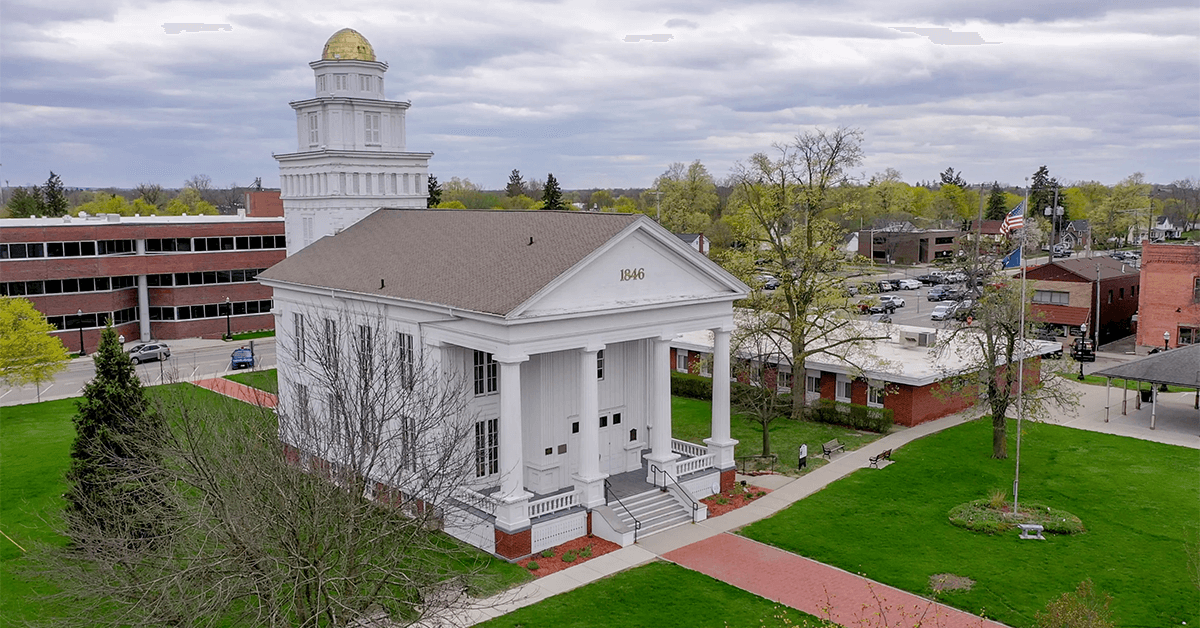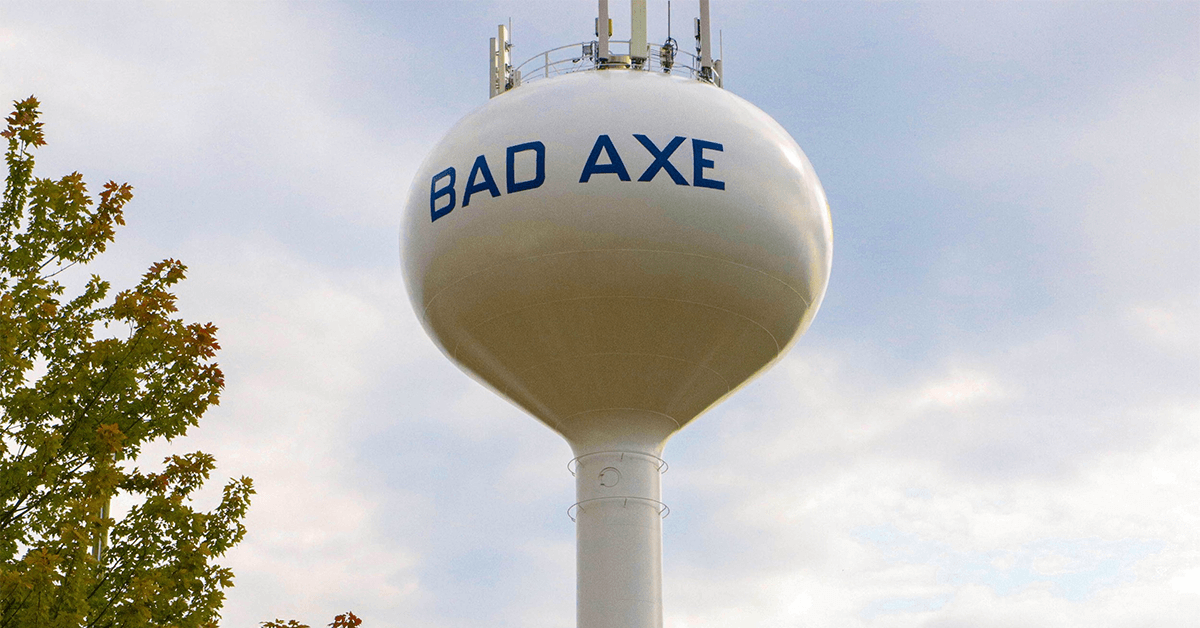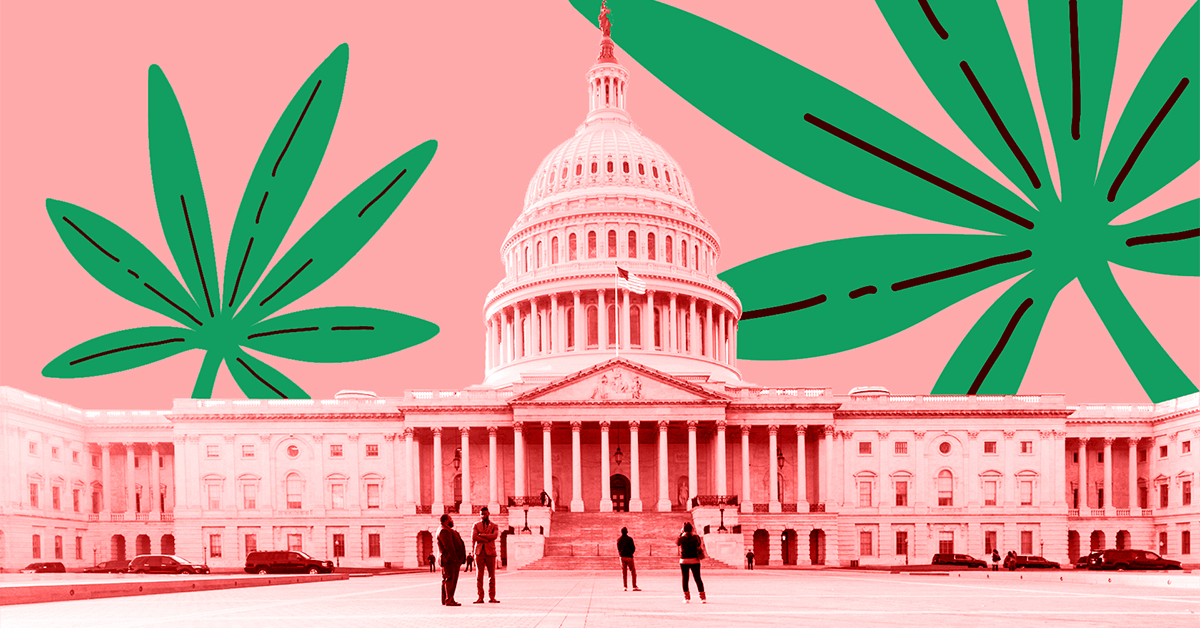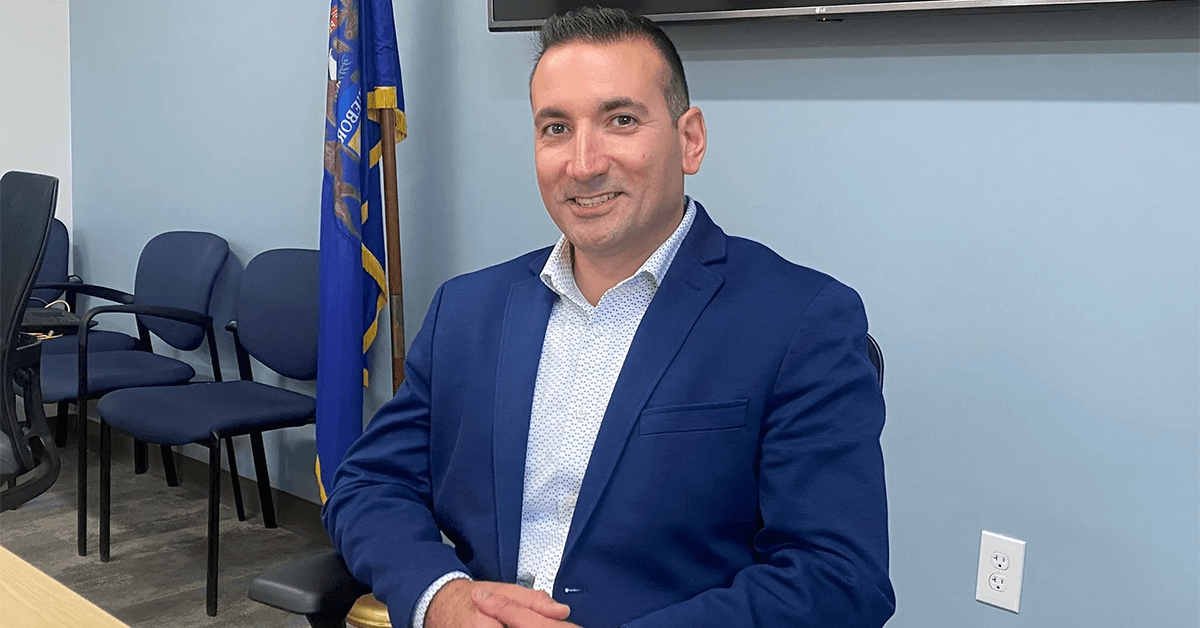Lapeer Extends Moratorium on New Cannabis Businesses for Six Months

The Lapeer City Commission has unanimously voted to extend the current moratorium on new cannabis business applications for an additional six months. This decision, made on Monday, follows a similar six-month moratorium approved in January at the behest of City Manager Mike Womack, who sought time to collaborate with staff on amending ordinances and policies related to cannabis businesses.
City staff have identified several issues with the existing cannabis ordinances. Womack, in a memo to the City Commission, emphasized the need for the moratorium to allow staff to focus on studying and proposing necessary changes. "By imposing a moratorium, the City's staff can redirect the time normally required for their current cannabis-related work towards studying and proposing possible changes and solutions," Womack noted. "Also, by imposing a moratorium, we avoid a situation where a cannabis business attempts to obtain licensure or zoning approval during a time of changing rules and requirements."
Currently, Lapeer has licensed seven cannabis dispensaries, but there is no limit on the number of cannabis grow and processing facilities. The odor from these grow facilities has become a significant concern for residents and passersby, particularly along Saginaw and Court streets.
Additionally, the location of dispensaries and grow facilities has raised concerns among the public and some city officials. Issues have been noted regarding the impact of cannabis business operations on major roadways adjacent to other retail and commercial businesses, as well as their proximity to residential areas.
Lapeer's journey with cannabis laws began in April 2018 with the approval of medical marijuana, followed by the approval of recreational marijuana in 2020. In November 2021, city voters decisively rejected a ballot proposal to prohibit cannabis businesses by a 2-1 margin, with 1,137 votes against and 405 in favor.
"I had hoped to have the draft completed in six months, but life happened and I wasn't able to," Womack said. "I think three to four months is likely to get it done, and we will cancel the moratorium when a new ordinance is adopted."
The moratorium applies only to new cannabis licensure or zoning approval requests and does not affect existing approved requests. Renewals of current licenses are being processed through the City's regular procedures.
In related developments, Womack and city staff are negotiating with a Livonia company regarding a potential land swap. This would relocate a proposed cannabis grow facility from a vacant lot on Genesee Street, between Arnold's Car Wash and Krave restaurant, to a city-owned parcel in the industrial park on John Conley Drive.
Bad Axe Cannabis Ordinance Fails in City Council Vote

The Bad Axe City Council rejected a proposed cannabis ordinance with a 5-2 vote during their July 1st meeting, which drew a significant public turnout.
The decision followed a lively public comment session where both supporters and opponents of the ordinance voiced their opinions. Prior to the vote, the council rescinded a previous decision to put the ordinance on the ballot for voters to decide.
Jo Wolschlager, a property owner in Bad Axe but not a resident, spoke in favor of the ordinance. Wolschlager highlighted the medical benefits of cannabis and the potential economic advantages for the city. She emphasized that the revenue generated could benefit the local community rather than being spent elsewhere.
"My biggest reason for approval is because of unintended consequences," Wolschlager stated. "We may not all agree with recreational use of cannabis, but it also has a lot of medical uses. If an individual does not agree with recreational use, then simply don't go there."
Despite her arguments, Wolschlager was the only person to speak in favor of the ordinance. Kevin Richardson, representing the opposition, cautioned the council against prioritizing tax revenue over community values.
"I just don't want the council to think that, 'We're going to get a lot of tax revenue from this,'" Richardson said. "We do have to draw lines. Just because you get tax money from it, doesn't mean it's right."
The ordinance ultimately failed with council members Clark McKimmy, Dan Rapson, Joel Harrison, Nicholas Rochefort, and Mayor Kathleen Particka voting against it. Council members Steve Perez and Dan Glaza were the only supporters of the ordinance.
Misstep Forces Bad Axe to Reconsider Cannabis Ordinance Vote

The Bad Axe City Council will need to rescind its previous motion to put its proposed cannabis ordinance to a public vote after learning it did not follow proper procedure.
The council will address this issue at the meeting on July 1st, where they will also vote on whether to approve the ordinance directly.
"According to the city attorney, we cannot put the ordinance on the ballot," stated Bad Axe City Manager Rebecca Bachman. "We were unaware that this was not permissible."
Bachman explained that the Bad Axe City Council must initially vote on the ordinance. The only way it could appear on the ballot is through a voter-initiated referendum.
A referendum requires signatures from 15% of the city's registered voters. If a petition with the necessary signatures is filed within the timeframe specified by the city charter, the clerk will present it to the council at the next regular meeting. These signatures must be collected within 30 days before the petition is filed with the clerk.
Previously, the council voted 4-3 to place the ordinance on the ballot.
Recreational cannabis was legalized in Michigan following the 2018 general election, where 56% of voters supported Proposal 18-1. However, Huron County voters opposed the proposal, with a vote count of 8,261 against and 5,479 in favor. In Bad Axe, the proposal was narrowly rejected by a margin of seven votes, 541-534.
In early 2019, the city voted unanimously to ban cannabis facilities within city limits.
In 2021, non-residents expressed interest in establishing cannabis businesses in Bad Axe. The council, however, voted 4-2 against pursuing these discussions. Subsequently, the council authorized the Bad Axe Police Department to research ordinances from other municipalities.
In November 2023, the city finally decided to begin the process of developing a recreational cannabis ordinance for Bad Axe.
House Republicans Remove Cannabis Banking Protections from Funding Bill

Why Did House Republicans Drop Cannabis Banking Protections?
House Republicans recently blocked a provision within a crucial funding bill that aimed to protect financial institutions serving legal cannabis businesses. According to a report by The Hill, the provision would have prohibited the use of government funds to penalize banks and credit unions for offering services to legal hemp and cannabis businesses. This decision came after significant internal opposition and highlights the ongoing debate over federal cannabis policies.
Limited Options for Cannabis Banking in Michigan
In Michigan, cannabis businesses face limited banking options. Only a few small banks and credit unions provide services to the industry, and these come at high monthly costs. Larger financial institutions refrain from engaging with cannabis businesses due to the fear of losing their federal charters. The federal classification of cannabis as a Schedule I drug, alongside heroin and cocaine, perpetuates these challenges.
Impact on Legal Cannabis Businesses Across the U.S.
Representative David Joyce (R-Ohio), chair of the subcommittee overseeing the funding bill, addressed concerns about the removal of cannabis banking protections. He emphasized the importance of respecting state laws and the potential benefits of cannabis regulations for public safety and quality of life. Joyce's Financial Services and General Government bill initially included provisions to protect states' rights in regulating cannabis, aiming to harmonize federal and state laws.
Congressional Debate: States' Rights vs. Federal Law
During a recent subcommittee markup, Representative Chuck Edwards (R-N.C.) voiced strong opposition to the banking protections. Edwards argued that permitting banking for a federally illegal substance like cannabis could be seen as tacit approval of its use. He stressed the need for clear federal policies amid the evolving landscape of state cannabis laws, asserting that cannabis should remain illegal due to its potential harms.
Growing Support for Cannabis Banking Reforms
The debate within Congress reveals a division, especially among Republicans, over cannabis legalization. Despite this, there is growing support for reforms that would allow cannabis businesses better access to banking services. The increasing number of states legalizing recreational marijuana and the growing public support for legalization are driving this momentum. These factors are reshaping federal cannabis policies and banking regulations.
Overview of the Secure and Fair Enforcement Banking Act (SAFE Act)
The Secure and Fair Enforcement (SAFER) Banking Act of 2023, introduced by a bipartisan group in Congress, seeks to provide protections for financial institutions serving state-sanctioned cannabis businesses. The act aims to resolve conflicts between federal and state laws by creating a safe harbor for banks, credit unions, and other financial institutions. If enacted, the SAFER Banking Act could significantly impact the cannabis industry by promoting public safety, expanding access to deposit accounts, and enabling more efficient business operations.
Rep. Joyce Addresses Bipartisan Support
Representative Joyce highlighted the strong bipartisan support for cannabis banking measures. He acknowledged concerns but emphasized his commitment to funding the government and advancing his legislation.
Final Thoughts
The decision by House Republicans to remove cannabis banking protections from the government funding bill underscores the complex political divisions and policy concerns surrounding cannabis legalization in the U.S. Proponents argue for states' rights and improved banking access for legal cannabis businesses, while opponents raise issues about federal law and potential risks. This debate highlights the evolving nature of cannabis regulation and the challenges faced by policymakers in aligning state-level reforms with federal mandates.
Michigan CRA Mandates MCT Oil Testing in Cannabis Vape Cartridges

The Cannabis Regulatory Agency (CRA) in Michigan has announced a significant update to its Sampling and Testing Technical Guidance for Cannabis Products. Starting October 1st, 2024, medium-chain triglyceride (MCT) oil will be included as a target analyte for vape cartridge testing. This update aims to enhance consumer safety by identifying and eliminating potentially harmful ingredients in inhalable cannabis products.
MCT oil, often derived from coconut or palm oil, is widely used in food and oral supplements. However, its safety as an inhalable substance is questionable. When aerosolized and inhaled, MCT oil can pose respiratory health risks. Consequently, any cannabis vape products that test positive for MCT oil will not be eligible for remediation.
"From a public health and safety standpoint, the potential for adverse effects with MCT oil underscores the importance of safety guidelines for product development," stated CRA Executive Director Brian Hanna. "Michigan's licensed cannabis businesses must prioritize respiratory safety when formulating or using inhalable products, opting for ingredients that have been thoroughly evaluated for their compatibility with lung health. I look forward to when our new state reference laboratory is up and running, advancing the health and safety of Michigan cannabis consumers with advanced testing for diluents."
Robin Schneider, executive director of the Michigan Cannabis Industry Association, highlighted the proactive measures taken by some retailers. "Several of our retail members have been proactively pulling and testing their inventory to ensure the brands they showcase on their shelves do not contain MCT oil," she said. "Moving forward, this testing will take place before the retailers purchase inventory from producers, easing the burden on retailers and ensuring that the products they sell are safe. Required testing for MCT oil will further protect cannabis customers from vape-related lung illnesses and is a win for both the industry and consumers."
MiNORML Executive Director Anqunette Sarfoh expressed strong support for the new regulations. "The health and safety of cannabis consumers must always be our top priority. Emerging evidence suggests that inhaling MCT oil can pose serious respiratory risks, and it's imperative that we take proactive measures to prevent potential harm. By enforcing stricter regulations on vape product ingredients, Michigan is taking a significant step towards ensuring a safer cannabis industry for everyone, and we commend the state's commitment to protecting consumers."
Anton Harb Jr., an Iraq combat veteran and founder of the Veteran Access Program in Michigan, also praised the decision. "As the cannabis industry matures, so will the scientific and regulatory safety measures protecting it. This regulatory decision helps ensure the continued safety and well-being of all Michigan cannabis consumers."
The CRA is dedicated to evidence-based decision-making in its regulatory practices. As ongoing research into cannabis use, safety, and testing evolves, the Sampling and Testing Technical Guidance for Cannabis Products will be updated to reflect the latest findings and best practices.
Michigan's Brian Hanna Elected to National Cannabis Regulatory Board

Brian Hanna, the executive director of Michigan's Cannabis Regulatory Agency, was recently elected to the Cannabis Regulators Association (CANNRA) 2024-2025 Executive Board.
CANNRA is a nonpartisan, nonprofit organization comprising government agencies that regulate cannabis and cannabinoid activities across more than 45 states and U.S. territories, as well as Canada and the Netherlands. Board members must be active government regulators from a CANNRA-member jurisdiction and are elected to serve a one-year term by designated Voting Members from each member state or jurisdiction.
"Michigan has been involved with CANNRA since its inception, and I am honored to have been elected to the executive board," said Hanna. "Michigan has both contributed to and benefited from the vast exchange of information with other states through CANNRA. I look forward to collaborating with my fellow board members to support government agencies across the country engaged in the cannabis industry."
The newly elected board includes:
- President: Dominique Mendiola, Senior Director, Marijuana Enforcement Division, Colorado Department of Revenue
- Treasurer: Adria Berry, Executive Director, Oklahoma Medical Marijuana Authority
- Board Member: Kirsten Davis-Franklin, Deputy Cannabis Regulation Oversight Officer of Legislation and Policy, Illinois Department of Financial and Professional Regulation
- Board Member: Nicole Elliott, Director, California Department of Cannabis Control
- Board Member: Brian Hanna, Executive Director, Michigan Cannabis Regulatory Agency
- Board Member: Amy Moore, Director, Division of Cannabis Regulation, Missouri Department of Health and Senior Services
- Board Member: Andrew Turnage, Executive Director, Georgia Access to Medical Cannabis Commission
- Past President: Will Tilburg, Director, Maryland Cannabis Administration
"Our board represents regulators overseeing a diverse array of cannabis policies," stated Dr. Gillian Schauer, Executive Director of CANNRA. "They are well-equipped to help CANNRA effectively serve our diverse membership in the U.S. and internationally."
The election took place at a CANNRA Business Meeting on June 3rd, followed by CANNRA's External Stakeholder Meeting on June 4-5 in Minneapolis, MN. The event hosted 100 regulators from over 35 jurisdictions and nearly 200 other stakeholders from various national and international organizations.


 Helpful Links
Helpful Links